May 16th, 2016 was the 180th Anniversary of the marriage of Edgar Allan Poe and Virginia Eliza Clemm. Although they were only married for 11 years, their union is one of the most celebrated, tragic, and controversial ever chronicled. Poe’s unrequited love for Virginia has been immortalized in the writer’s work, most notably in the poem Annabelle Lee, published in 1849 (2 years after her death). He never truly recovered from the loss; Virginia’s death sent him into a downward spiral of alcoholism and self-destructive tendencies that led to his early death at age 40. But while Annabelle Lee is regarded as a paradigm of Gothic romanticism, the Poe/Clemm union has been derided as often as it’s celebrated. At the time of their nuptials, Virginia was only 13 years old; Edgar Allan Poe was twice her age. They were also first cousins.

Historians are divided on the appropriateness of their relationship; some say there was nothing unusual about it in the context of 19th Century society while others disagree. The fact that Poe and Clemm were first cousins was certainly less of a taboo back then, and a 13 year age difference hardly mattered, but it was still uncommon for women to get married before the age of 16. An adult marrying someone in the early stages of puberty is more than merely unacceptable by modern standards; if this type of relationship were attempted today, it would result in some very ugly legal ramifications. Edgar Allan Poe would be accused of statutory rape and could expect to lose both his livelihood and his freedom.
While there are certainly aspects of the Poe/Clemm union that may never be reconciled in a modern context, the mid 1800’s were a very different era. They definitely raised a few eyebrows when first wed, the veracity of their shared affections won over most detractors. By all accounts, they adored each other to an almost obsessive degree. Poe’s one-time employer George Rex Graham wrote of their relationship: “His love for his wife was a sort of rapturous worship of the spirit of beauty.” Those hung up on Virginia’s age should be aware that Poe also took in his bride’s mother, supporting them both for the remainder of his life. There are also reports that Poe and Clemm never actually slept in the same bed, remaining primarily platonic despite their gushing emotional displays. If Annabelle Lee is meant to be taken as autobiographical, we can even postulate that Virginia may have been a virgin at the time of her death; Annabelle is described as a “maiden”.
Anyone who doubts that Virginia’s love for Poe was genuine need only read the poem she wrote him in the final years of their marriage (February 14, 1846) when she was 23 years old:
Ever with thee I wish to roam —
Dearest my life is thine.
Give me a cottage for my home
And a rich old cypress vine,
Removed from the world with its sin and care
And the tattling of many tongues.
Love alone shall guide us when we are there —
Love shall heal my weakened lungs;
And Oh, the tranquil hours we’ll spend,
Never wishing that others may see!
Perfect ease we’ll enjoy, without thinking to lend
Ourselves to the world and its glee —
Ever peaceful and blissful we’ll be.
Like most marriages, Edgar Allan Poe and Clemm’s relationship suffered its ups and downs. The “tattling of many tongues” refers to a minor scandal that broke in 1845 when Poe became friends with Frances Sargent Osgood, a married 34-year-old poet. While she was more of a mentor to Poe (and a frequent guest at the home he shared with Virginia), another female poet by the name of Elizabeth F. Ellet became jealous of their perceived relationship. Ellet initiated what would probably be called a “smear campaign” in modern lingo, purporting an illicit affair between Poe and Osgood. And while Ellet’s insinuations were never substantiated, Poe and Virginia were severely vexed by the unwarranted slander. Poe was even goaded into a fist-fight with Ellet’s brother, Colonel William Lummis. While the gossip was eventually forgotten by the masses, it remained an opened wound for Virginia; on her death bed she reportedly stated Ellet had “murdered” her.
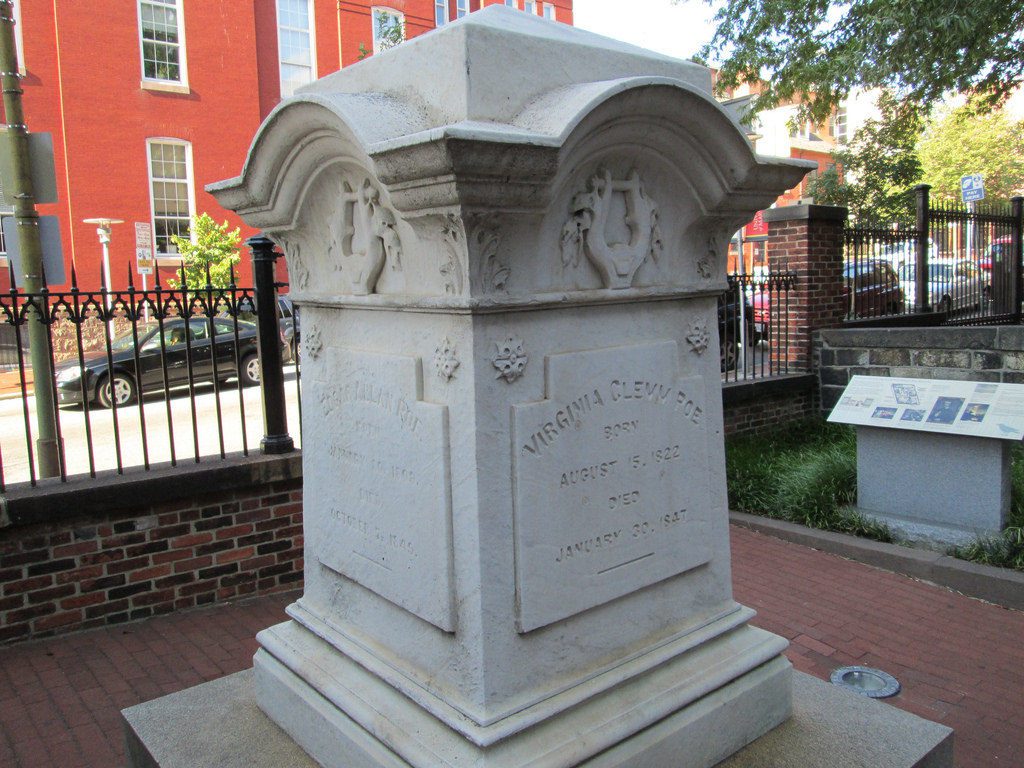
Virginia’s official cause of death was tuberculosis, which was called “consumption” at the time. Even before her passing, Poe became inconsolable; his literary works, which had always drifted towards the macabre, became almost exclusively about loss and death. In fact, Annabelle Lee would be the last full poem he ever completed; it’s as though he lost his ability to celebrate the gloriousness of love once separated from his muse. When Poe met his own demise in 1949, he was destitute, penniless, and most likely insane.
Poe and Clemm were reunited in death, figuratively and literally. 10 years after the erection of Poe’s Memorial in Baltimore, Maryland, Virginia’s bones were laid to rest by her husband’s side. Also joining them in a nearby plot: The remains of Maria Clemm, Virginia’s mother. One can only hope their devastated spirits found comfort in eternal slumber.
In 2015, Canadian artist and literary scholar Julian Peters combined his love of graphic novels and gothic poetry into a unique adaptation of Poe’s most haunting and beautiful ode: A comic-book style retelling of Annabelle Lee. Peters’ adaptation imagines both the narrator and Annabelle as children, eliciting the glowing warmth of first-love while retaining the piece’s dark, Gothic sensibilities. It’s infinite love and infinite sorrow intertwined, beautiful and heart-wrenching simultaneously. Experience it for yourself below.
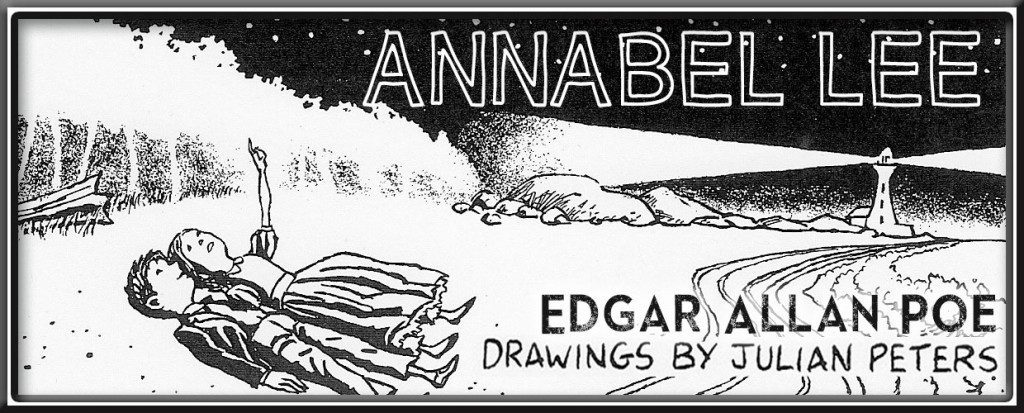
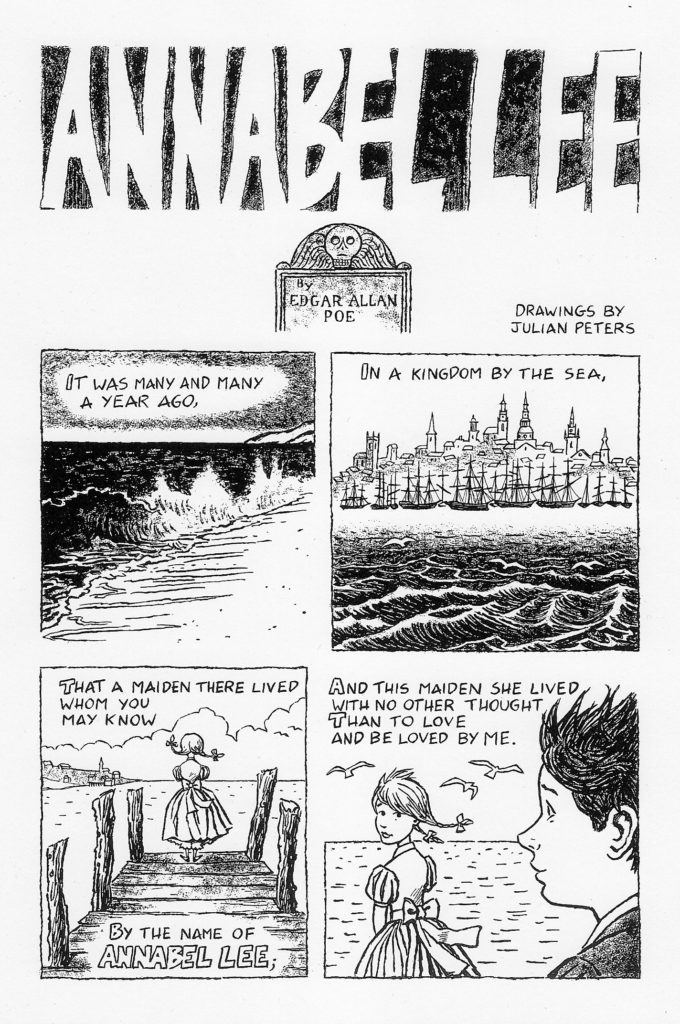
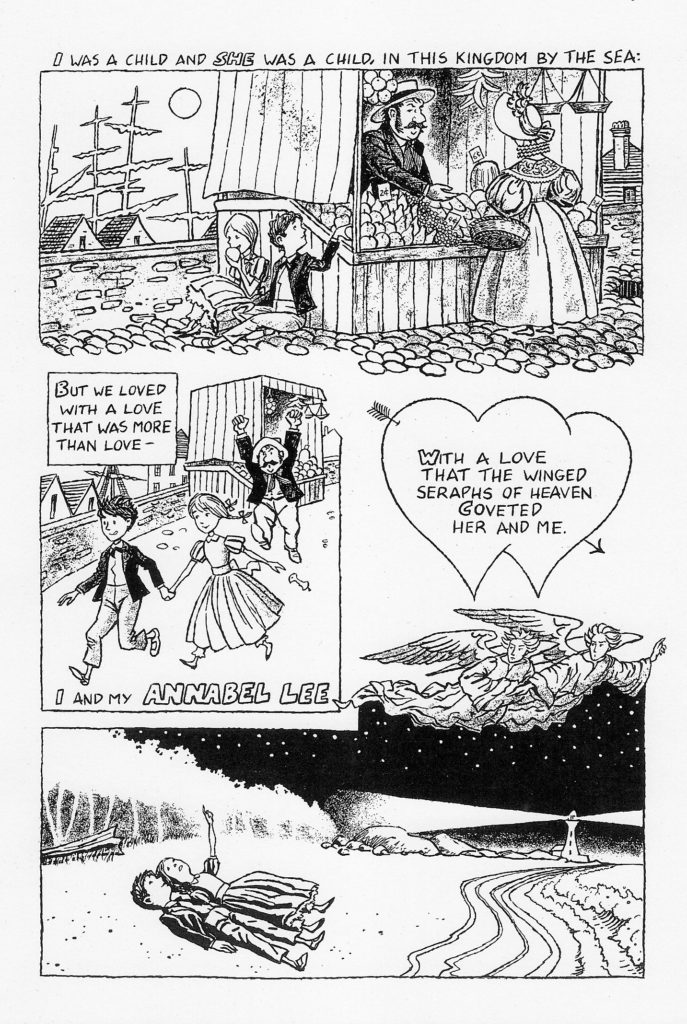
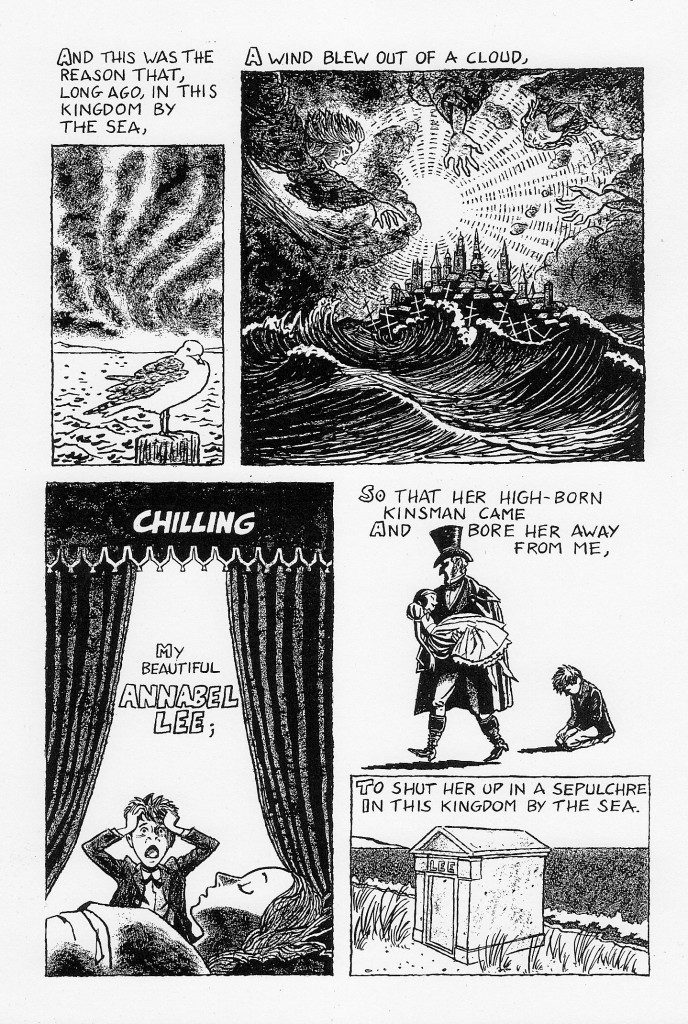



If you can’t get enough of me here on Pop Horror, follow me on Twitter @josh_millican for quality horror articles worthy of your attention.
 PopHorror Let's Get Scared
PopHorror Let's Get Scared
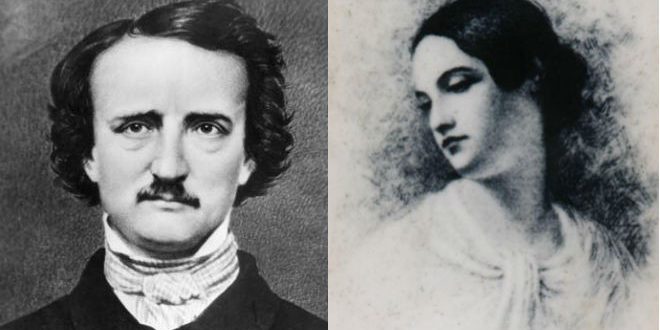



A minor typo, Poe died in 1849.